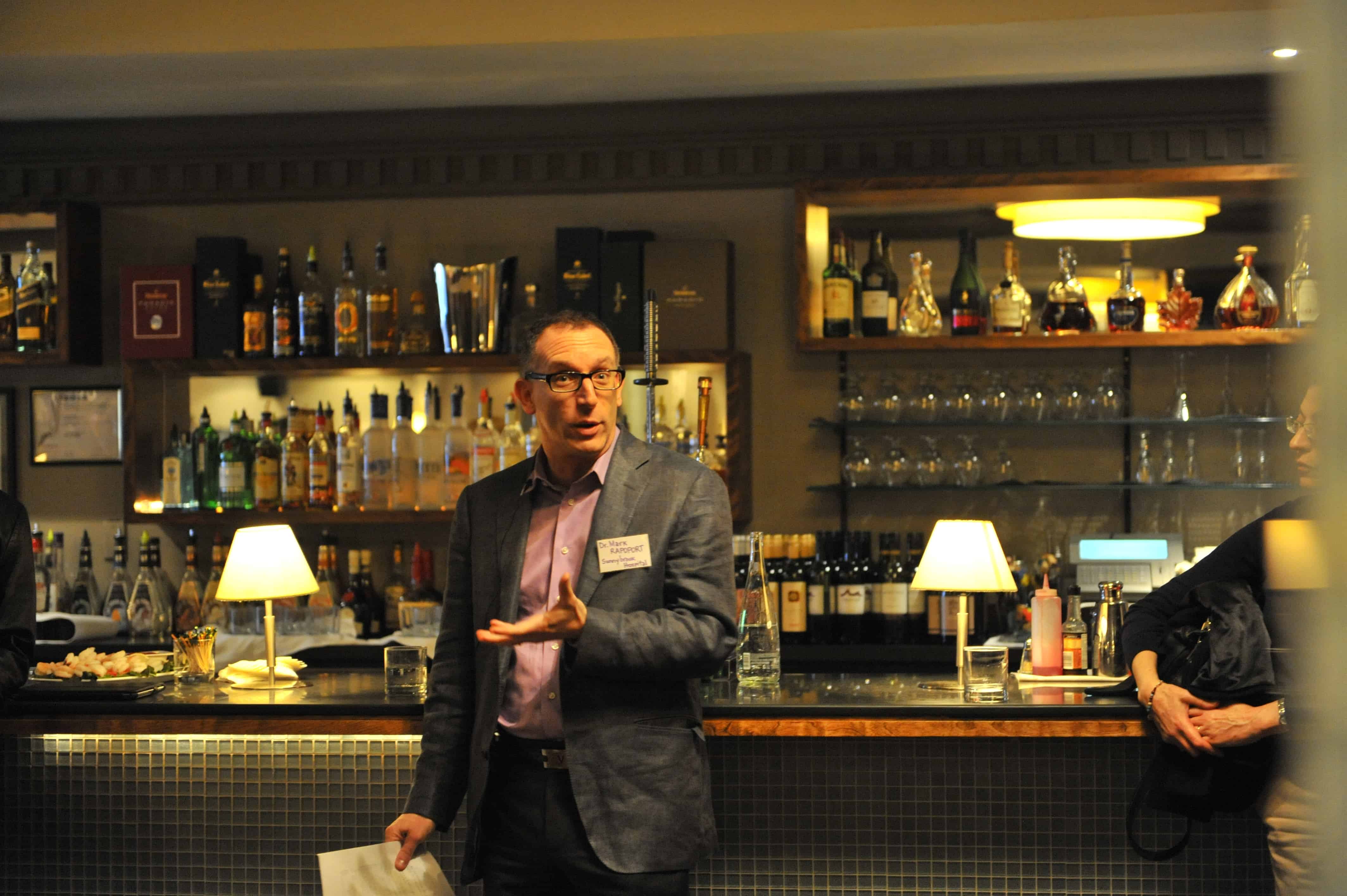A recent Café Scientifique seminar entitled “Use it or lose it,” addressed public misconceptions about Alzheimer’s. Dr. Michael Cusimano, a neurosurgeon, Dr. Mark Rappoport, a geriatric psychiatrist, and Dr. Yaakav Stern, a professor of clinical neuropsychology, gave informal talks at the “Forget about it” restaurant on King Street, noting that people have significant control over their mental health. All three doctors agreed that higher levels of formal education, leisure activities, and, counter-intuitively, stressful life events, may actually put off the onset of Alzheimer’s disease and dementia.
Although Alzheimer’s and dementia are globally widespread diseases, many people are unsure of the difference between the two conditions. Stern explained that dementia is a generic term while Alzheimer’s is one of the many types of dementia. Dementia is a change in a person’s mental abilities, which, in effect, changes his or her ability to perform otherwise routine activities; Alzheimer’s is a specific — and one of the most common — forms of dementia.
With the discrepancies between the two words cleared up, Cusimano started the seminar by explaining that as we age, our brains tend to shrink, leaving increased space between the brain and the skull. These spaces contain veins that can easily tear and cause a build up of blood. Our body naturally produces a protein fragment called amyloid which gets broken down in a healthy brain. If this amyloid is not eliminated, plaque build up can cause Alzheimer’s. Stern noted that recent technologies such as PET scans are able to detect amyloid plaques in the brain and thereby diagnose Alzheimer’s patients. There are a variety of medications whose side effects can mimic dementia. Without PET scan technology, doctors do not know whether the disease or the medication is causing the patients’ dementia.
Twenty-three years ago, a long-term study called the Manhattan study was performed on residents in areas of high and low education in Manhattan to see whether education made a difference in the prevention of Alzheimer’s. Alzheimer’s was found to be more common in areas of low education. This is not to say that all people less formally educated will get Alzheimer’s or dementia. In fact, when autopsies were performed on a higher-educated patient and a lower-educated patient, the higher educated patient had more plaques and tangles.
Further research suggests that increased stressors associated with lifestyle and occupation allow people to better cope with plaque buildup. Higher education will not stop a person from developing Alzheimer’s, but the life events that go along with such an education could be exactly what’s needed to help them cope with the disease. Follow-up studies to the Manhattan study have shown that more leisure activity, more engagement with large social circles, and more deep thinking help to make the brain larger, and can reduce the risk of Alzheimer’s disease.
It seems our parents were right when they told us to go to school, eat right, and relax. It’s easy to take for granted that these simple things can actually prevent Alzheimer’s disease and dementia later in life.


